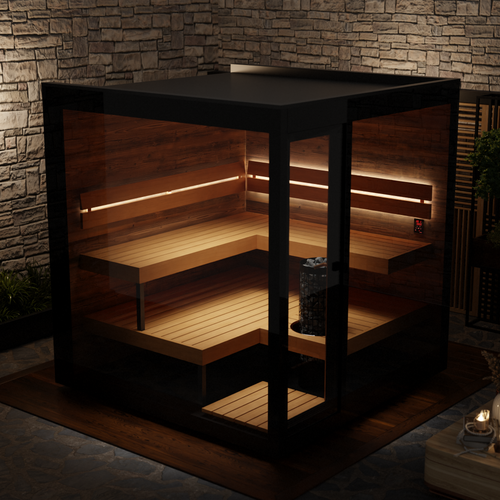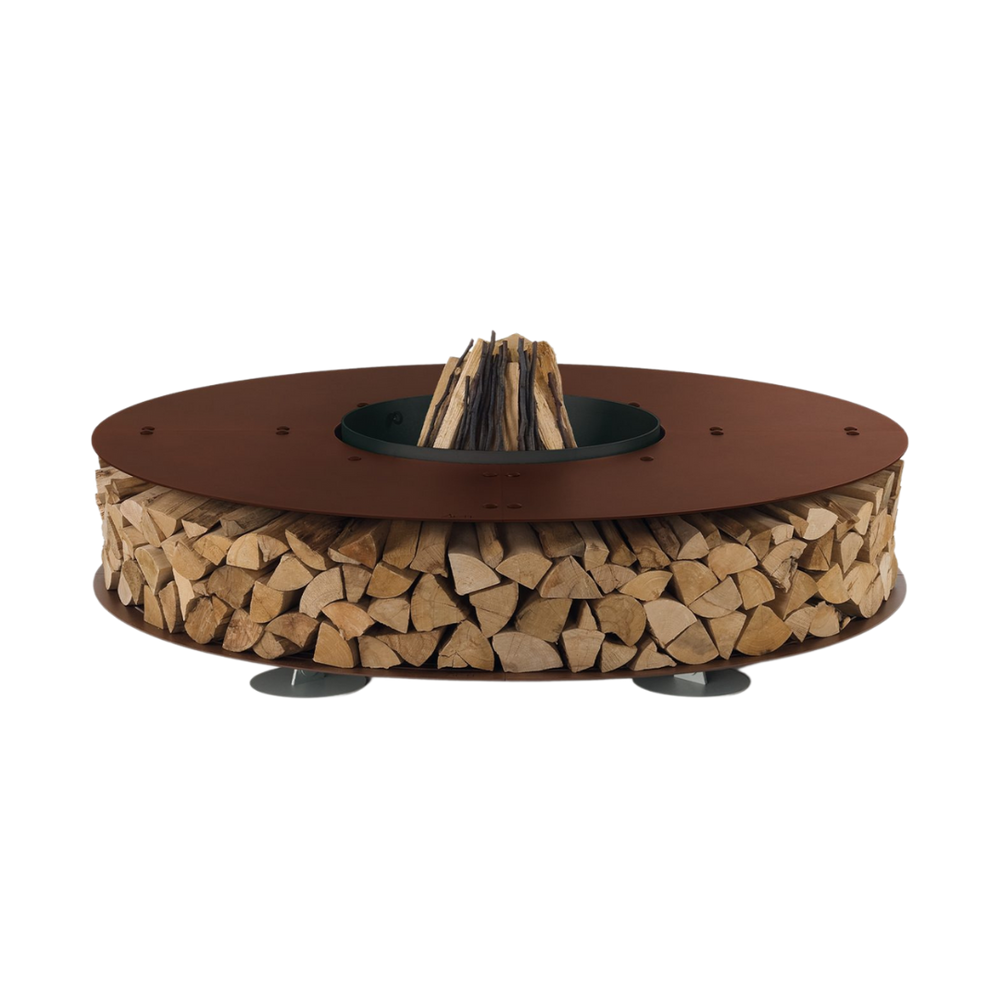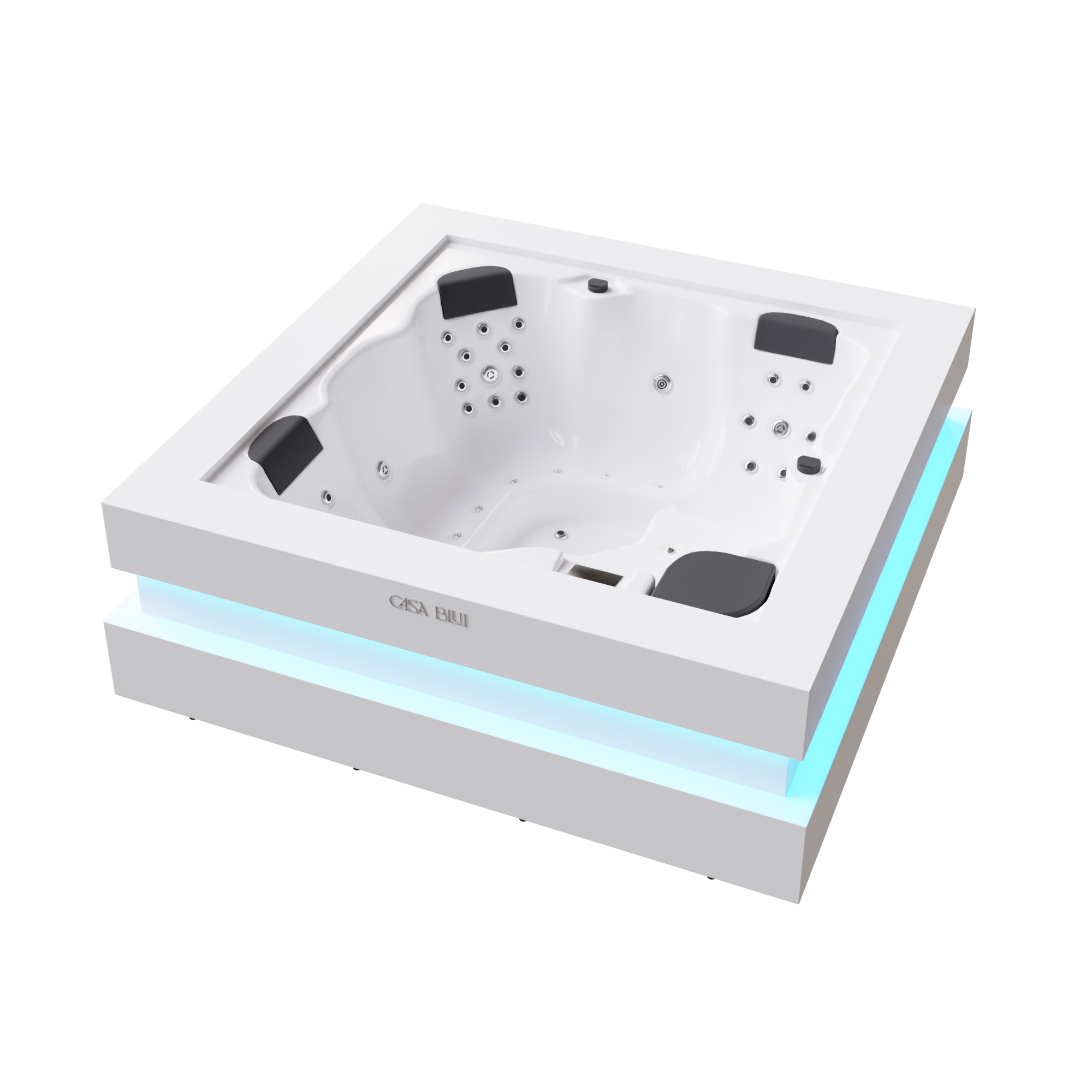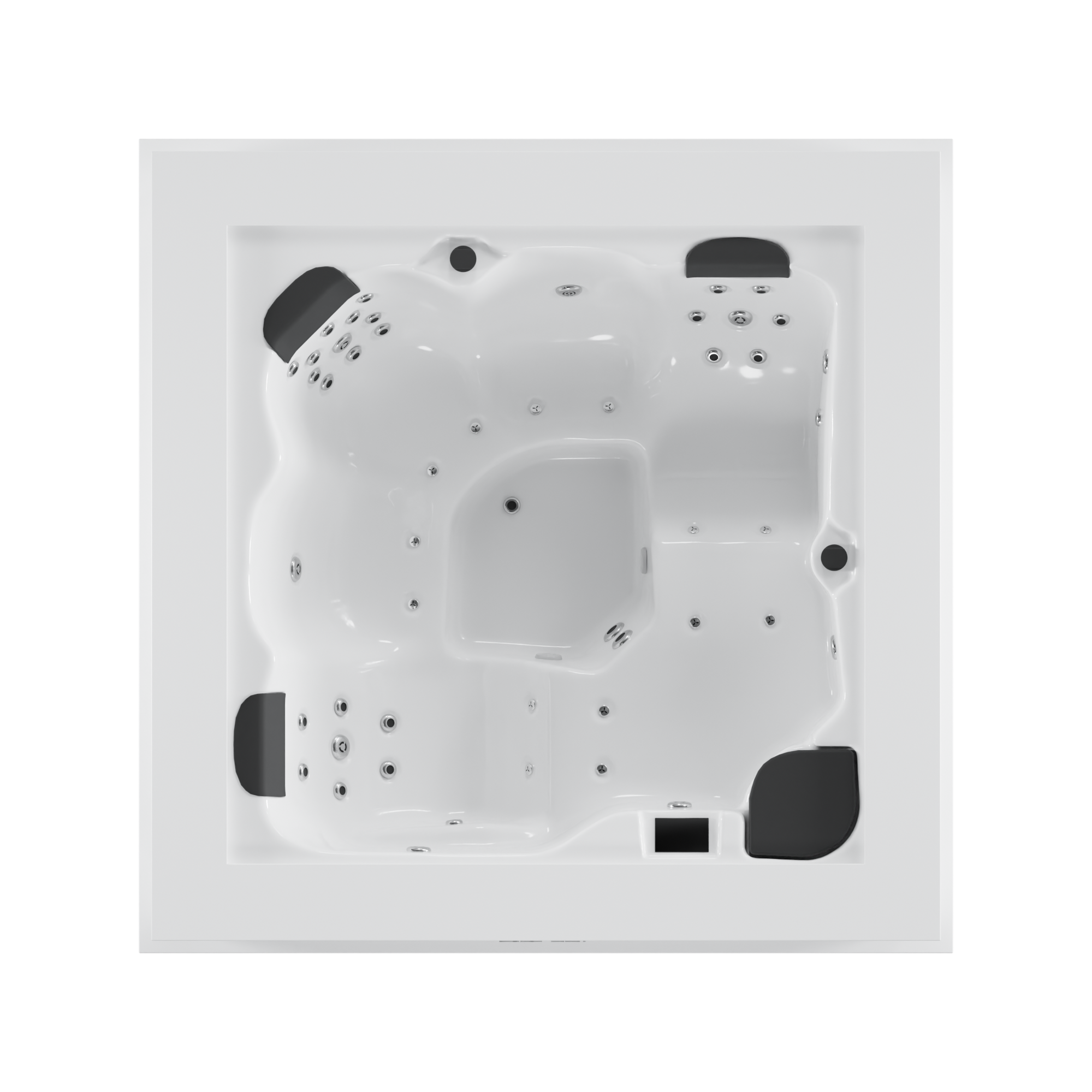Casa Blui Blog
How Much Is a Home Sauna?
By andrei newman

Are you considering adding glamor to your home with a luxury home sauna? Many homeowners are embracing saunas for their wellness benefits, but one of the first questions that comes to mind is, “How much is a home sauna?”
The answer depends on various factors, including the sauna’s type, size, materials, and installation specifics. Whether you’re looking to make a modest investment or sparing no expense on a high-end custom installation, this guide will help you understand the costs of bringing a sauna experience into your home.
How Much Is a Home Sauna? 4 Factors That Affect the Cost
A handful of factors influence the overall cost of a home sauna. Let’s look at what can impact pricing.
-
Type of Sauna
The type of sauna you choose will play a significant role in pricing. Here are the most common options:
-
Traditional Finnish saunas typically start between $6,000 and $11,000 and can increase. Known for their dry heat and use of heated rocks, they provide an authentic sauna experience.
-
Infrared saunas: Starting between $5,000 and $10,000, infrared saunas are energy-efficient and heat your body directly through light waves, reducing overall energy costs. If you compare infrared vs. traditional saunas or infrared vs. steam saunas, infrared saunas are more cost-effective.
-
Steam saunas: These are usually more expensive than traditional saunas because they require a steam generator and plumbing setup.
-
Custom saunas: If you seek a fully personalized experience, custom home saunas can range from $5,000 to $50,000. These saunas are designed to fit your space and style, offering premium materials, unique features, and a completely tailored design for ultimate luxury.
-
Portable saunas: These affordable options offer convenience and flexibility, allowing you to enjoy heat therapy without a permanent setup. You'll find portable saunas are far more cost-effective when you compare portable saunas to infrared saunas, steam saunas, or traditional saunas.
-
Size and Capacity
The size of the sauna significantly affects its price:
-
Small saunas (2-person): Smaller saunas start from $4,000 and go up from there.
-
Medium saunas (4-person): These start from around $6,000 and go up from there.
Larger saunas cost more due to the increased material requirements and installation complexity. Consider the number of people using the sauna regularly to help you choose the correct size.
If you want to design your home like a celebrity, invest in a giant, custom sauna that seamlessly integrates with your home’s aesthetic. Consider pairing it with a luxury hot tub for the ultimate relaxation experience.
-
Material Choices
The materials you choose for your sauna directly impact your investment. Premium woods like redwood, Nordic white spruce, and cedar offer elegance and durability, making them famous for high-end saunas. These options drive up the price but deliver a more spa-like experience, similar to other luxury health features in the homes of the rich and famous.
Sauna Wood Types & Costs
|
Wood Type |
Cost per Square Foot |
Characteristics and Benefits |
|
Redwood |
$6 - $10 |
Durable and resistant to decay, offering a beautiful, rich color. |
|
Nordic White Spruce |
$3 - $6 |
A cost-effective yet durable option with a light, natural look. |
|
Cedar (Western Red Cedar) |
$5 - $8 |
It is known for its aromatic properties and natural resistance to moisture. |
|
Hemlock |
$3 - $5 |
Affordable, with a clean, pale color and smooth texture. |
|
Pine |
$2 - $4 |
Economical, widely available, and versatile for various sauna designs. |
|
Aspen |
$4 - $7 |
Lightweight, with a clean, pale appearance, and resistant to swelling in humid conditions. |
|
Alder |
$5 - $7 |
An attractive alternative to cedar, often used for custom, luxury saunas. |
|
Basswood |
$4 - $6 |
Softwood with excellent heat retention properties is often used in traditional and infrared saunas. |
Location: Indoor vs. Outdoor
Your sauna's location— indoors or outdoors—significantly impacts its overall cost, features, and installation requirements.
Indoor Saunas
Indoor saunas are a popular choice for homeowners who prefer the convenience of having their wellness retreat inside their homes. These saunas are often integrated into bathrooms, basements, or spare rooms. However, they require additional investment in ventilation and moisture control systems to prevent mold, mildew, and other structural issues that humidity can cause. The installation process might involve modifying your home to ensure proper airflow, which adds to the cost.
Indoor saunas generally use lighter materials and standard glass, keeping costs lower than their outdoor counterparts. However, their compact design makes them ideal for homes with limited space.
Outdoor Saunas
Outdoor saunas help to turn your outdoor area into a luxurious personal wellness backyard, and their design reflects this. Built to withstand the elements and provide year-round comfort, outdoor saunas feature characteristics that justify their higher price points:
-
Super high-quality glass: Outdoor saunas often use tempered, weather-resistant glass to maintain structural integrity even in extreme temperatures.
-
Hingeless doors: Hingeless or concealed door systems are standard in outdoor saunas because they are durable and attractive. These designs minimize wear and tear and enhance the sauna's seamless integration with outdoor landscapes.
-
Thicker insulation: Outdoor saunas are built with super-thick insulation to maintain optimal heat retention and withstand varying climates. This ensures they remain energy-efficient and comfortable, even in harsh winter conditions.
-
Thicker interior and exterior wood: The wood in outdoor saunas is significantly denser and more robust than in indoor saunas. Premium materials like Nordic white spruce, cedar, and redwood are standard options for their beauty and resistance to decay, warping, and weather damage.
Additionally, outdoor saunas can be stunning focal points in your backyard or garden, creating a personal wellness retreat. For homeowners with the space and budget, it's possible to paint them with complementary features like hot tubs, cold plunges, or fire pits for the ultimate relaxation experience.
When deciding between an indoor or outdoor sauna, consider your home's layout, climate, and long-term goals for its use. While indoor saunas may be more affordable and compact, outdoor saunas offer unmatched durability and luxury, making them a worthwhile investment if you seek a high-end, long-lasting addition to your home.
Average Costs for Different Types of Home Saunas
Your investment will vary depending on whether you select a prefabricated, custom-built, or DIY sauna. Let's examine how these different options compare.
Custom-Built Saunas
A custom-built sauna is the most luxurious choice. Working with your supplier to design your perfect sauna is also the best way to ensure the product meets your needs and preferences.
Custom saunas can range from $5,000 to $50,000, with your final investment depending on your specific add-ons and unique selections (e.g., premium woods, lighting, and sound systems). Highly tailored saunas can add significant value to your home.
Prefabricated Saunas
Prefabricated saunas are popular for homeowners looking to balance investment and convenience. These pre-assembled units typically start between $5,000 and $10,000 and can increase. They're easy to install since they don't involve extensive customization. While prefabricated saunas are ideal for homeowners who want a quick and reasonably priced solution, their lack of customization can also be a downside if you're looking for more personalized features.
DIY Sauna Kits
DIY sauna kits are an affordable option for homeowners who enjoy hands-on projects. These kits typically start between $1,500 and $3,000 and go up from there, depending on your choice of materials. These can provide you with the satisfaction of building your home sauna yourself. However, DIY sauna kits are only an option if you're savvy regarding home improvement. DIY installation requires technical know-how, and you may need to budget for tools and electrical work if necessary. In most cases, it's easier and safer to buy a ready sauna and pay for a professional installation.
Luxury Sauna Enhancements and Customization Options
If you're looking to elevate your sauna experience, luxury upgrades offer unmatched comfort and wellness benefits. Here are some popular high-end options:
-
Himalayan salt walls: These create a serene ambiance and release air-purifying ions. Common in luxury spas, adding salt walls can cost between $2,000 and $7,000.
-
Chromotherapy lighting: Color therapy lighting enhances mood and relaxation. Premium systems with app controls range from $500 to $3,500 and provide a tailored wellness experience.
-
Integrated sound systems: Surround sound allows for a calming audio experience, with custom systems starting between $1,000 and $5,000. Weather-resistant speakers are ideal for sauna use.
-
Advanced ventilation and climate control: High-end ventilation with humidity and temperature control can cost between $2,000 and $10,000 or more, ensuring optimal air quality and comfort.
These enhancements turn a standard sauna into a personalized wellness retreat, bringing spa-level luxury into your home.
Installation Costs for a Home Sauna
Installing a sauna costs between $3,000 and $10,000 and can go up from there. The price depends on the type, size, and materials you choose. Different home sauna design ideas will affect the cost. You will pay more for custom features, high-end materials, and additional elements like landscaping or separate structures. Luxury upgrades will raise costs but transform the sauna into a personalized wellness retreat.
Hiring professionals to ensure the proper setup and safety is highly recommended. Labor costs for prefab kits may cost a few hundred dollars or a few thousand dollars. In contrast, custom installations can cost up to $200 per hour.
A DIY installation can cut labor costs but requires technical skill and time. If you opt for a DIY installation, factor in tool costs, electrical work, and the time commitment.
All home saunas require specific electrical work to operate safely. Traditional and infrared saunas require a dedicated circuit and an upgraded electrical panel. If you compare steam saunas to traditional saunas, steam saunas will need plumbing for the steam generator, adding to the cost.
Ongoing Costs of Owning a Home Sauna
Aside from the initial costs, consider the ongoing expenses of owning a home sauna.
Energy Consumption
Energy costs for home saunas can range from $300 to $600 per year. Traditional saunas usually require more energy to heat than infrared models. Use a timer to preheat the sauna only when necessary, make sure the sauna is adequately insulated, and opt for energy-efficient infrared saunas.
Maintenance and Repairs
Regular maintenance keeps your sauna in top condition and ensures its longevity and performance. Annual maintenance can start between $300 and $1,200 annually and increase depending on your specific model and circumstances. You must clean and disinfect its surfaces, check the heating elements and electrical connections, and repair or replace damaged wood. Many sauna manufacturers offer extended warranties that cost between a few hundred and a few thousand dollars, which can help cover repair costs.
Sauna Accessories and Upgrades
Improving your sauna experience often requires additional accessories, which can range from ventilation systems ($250 to $4,000) to sauna heaters ($500 to $2,500) to sound systems ($100 to $1,000).
Health Benefits and Home Value Impact of a Sauna
Home saunas provide several health benefits, including improved circulation, stress relief, and muscle relaxation. There's evidence that regular use supports detoxification, boosts the immune system, enhances skin health, and contributes to overall well-being.
Additionally, installing a sauna can increase your home's value, particularly in luxury markets. It adds a desirable wellness feature, making your property stand out and potentially boosting its value by 5% to 10%.
Frequently Asked Questions
How much does a home sauna typically cost?
Home sauna costs range from $5,000 to $50,000, with the final price depending on your choice of model, materials, customizations, and the complexity of the installation. Larger saunas and custom installations command a higher investment.
What types of home saunas are available?
The three main types of home saunas are traditional Finnish, infrared, and steam saunas.
Can I install a sauna myself to save money?
Yes, DIY sauna kits exist, allowing for potential labor savings. However, installing a DIY sauna requires a great deal of technical know-how in electrical wiring and plumbing, so many sauna owners find more value in hiring professional installers, as it's a safer and more convenient option.










